Voice actors vote overwhelmingly to approve a strike: 'It’s time for the videogame companies to stop playing games'
They're not actually on strike yet, but it could happen if negotiations for a new contract fall through.
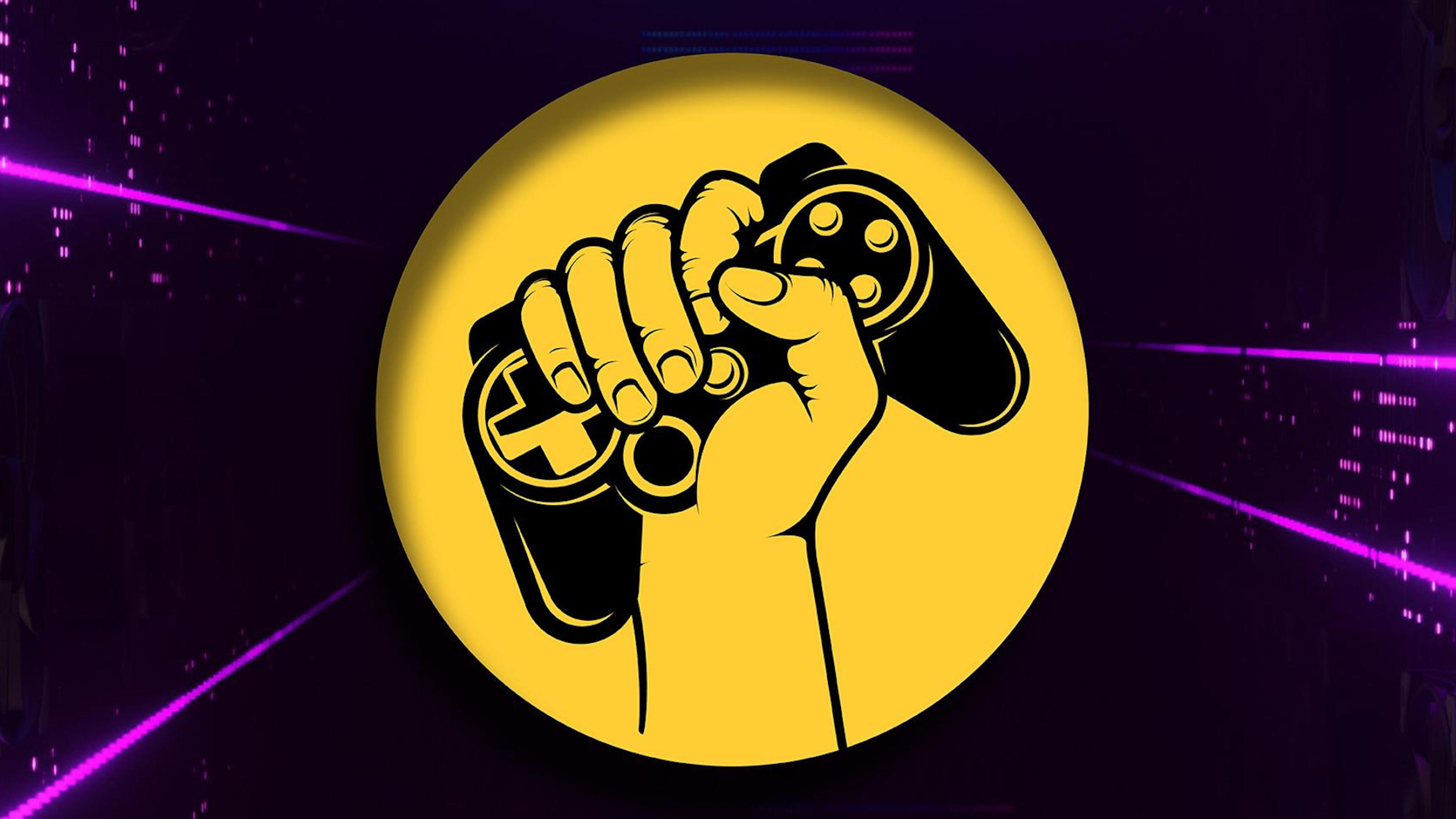
SAG-AFTRA, the union representing actors, broadcast journalists, hosts, voice actors, and other media professionals in the US, has voted overwhelmingly to authorize a strike against videogame companies including Activision, Electronic Arts, Epic Games, and Take-Two Interactive. The vote does not mean that a strike will be called, but the union hopes it will provide "added leverage" in its negotiations for a new Interactive Media Agreement.
The terms of the current Interactive Media Agreement were reached in 2017 following a nearly year-long strike by voice actors. That deal was set to expire in 2020, but was eventually extended until November 2022.
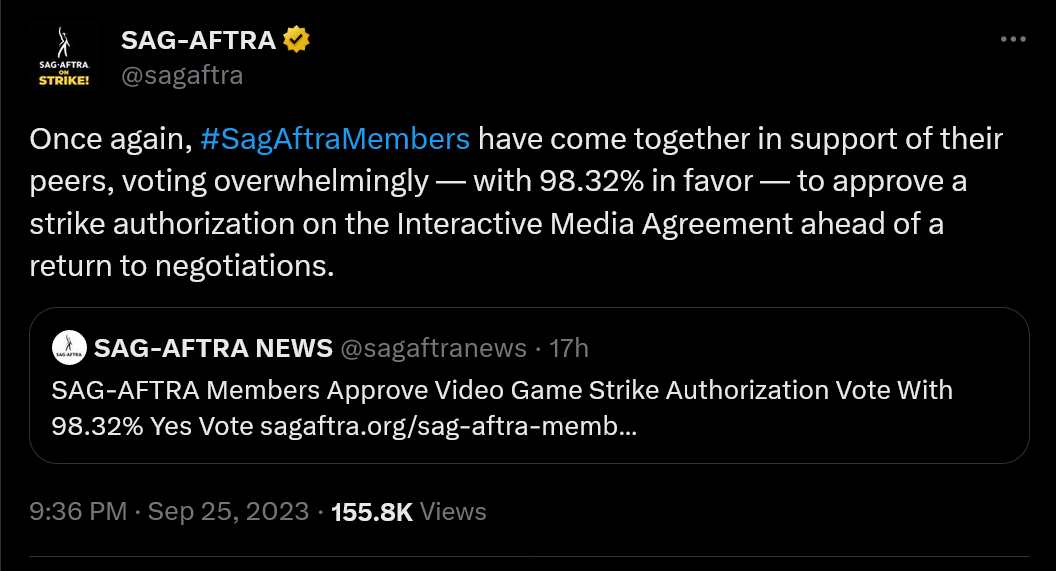
Negotiations for an updated agreement have been underway since October 2022, but SAG-AFTRA said signatory game companies "have refused to offer acceptable terms on some of the issues most critical to our members, including wages that keep up with inflation, protections around exploitative uses of artificial intelligence, and basic safety precautions."
The list of signatory game companies includes:
- Activision
- Blindlight
- Disney
- Electronic Arts
- Epic Games
- Formosa Interactive
- Insomniac Games
- Take-Two Interactive
- VoiceWorks Productions
- WB Games
"It’s time for the videogame companies to stop playing games and get serious about reaching an agreement on this contract," SAG-AFTRA President Fran Drescher said. "The result of this vote shows our membership understands the existential nature of these negotiations, and that the time is now for these companies—which are making billions of dollars and paying their CEOs lavishly—to give our performers an agreement that keeps performing in videogames as a viable career."
SAG-AFTRA also represents actors who have been on strike since July, but the Interactive Media Agreement negotiations are separate from that. Many of the issues being negotiated are similar, however.
"Between the exploitative uses of AI and lagging wages, those who work in videogames are facing many of the same issues as those who work in film and television," chief contracts officer Ray Rodriguez said. "This strike authorization makes an emphatic statement that we must reach an agreement that will fairly compensate these talented performers, provide common-sense safety measures, and allow them to work with dignity. Our members’ livelihoods depend on it."
Keep up to date with the most important stories and the best deals, as picked by the PC Gamer team.
SAG-AFTRA said "critical issues at play" in the negotiations include:
- Artificial intelligence protections around consent, control, transparency and compensation.
- Wage increases that reflect compensation erosion due to inflation.
- Safety for on-camera performers and vocal stress protections for voice artists.
The union said that a total of 34,687 members, representing 27.47% of eligible voters, cast ballots in the vote. Of those, 98.32% were in favor of authorizing a strike.
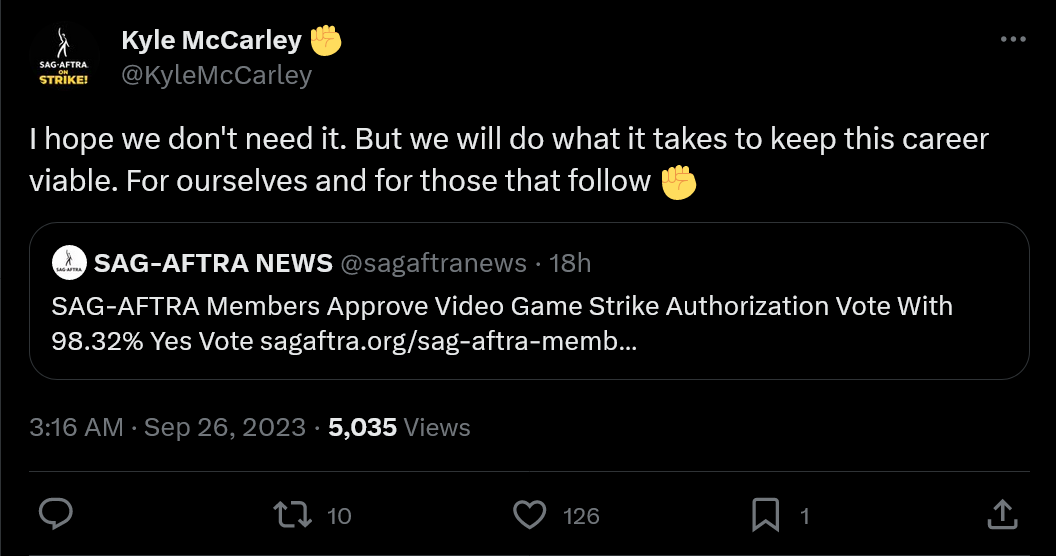
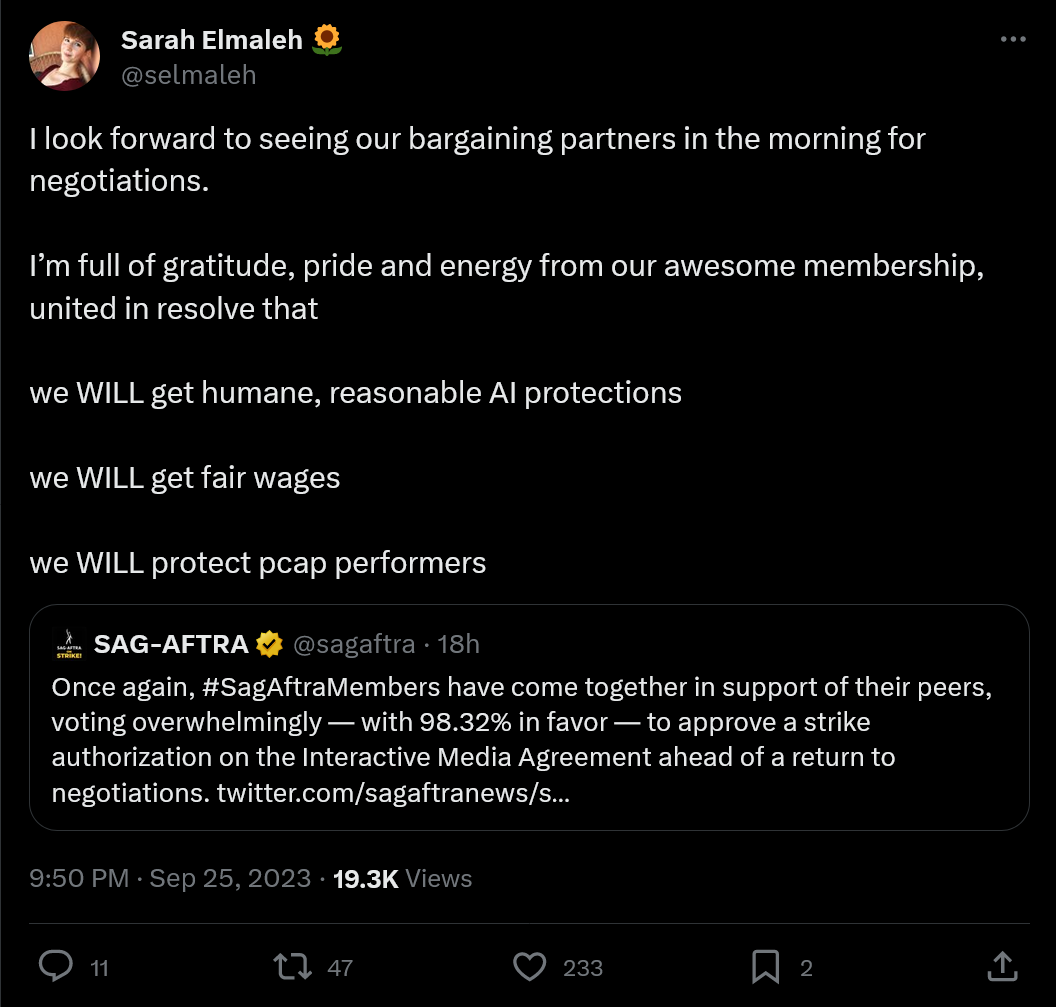
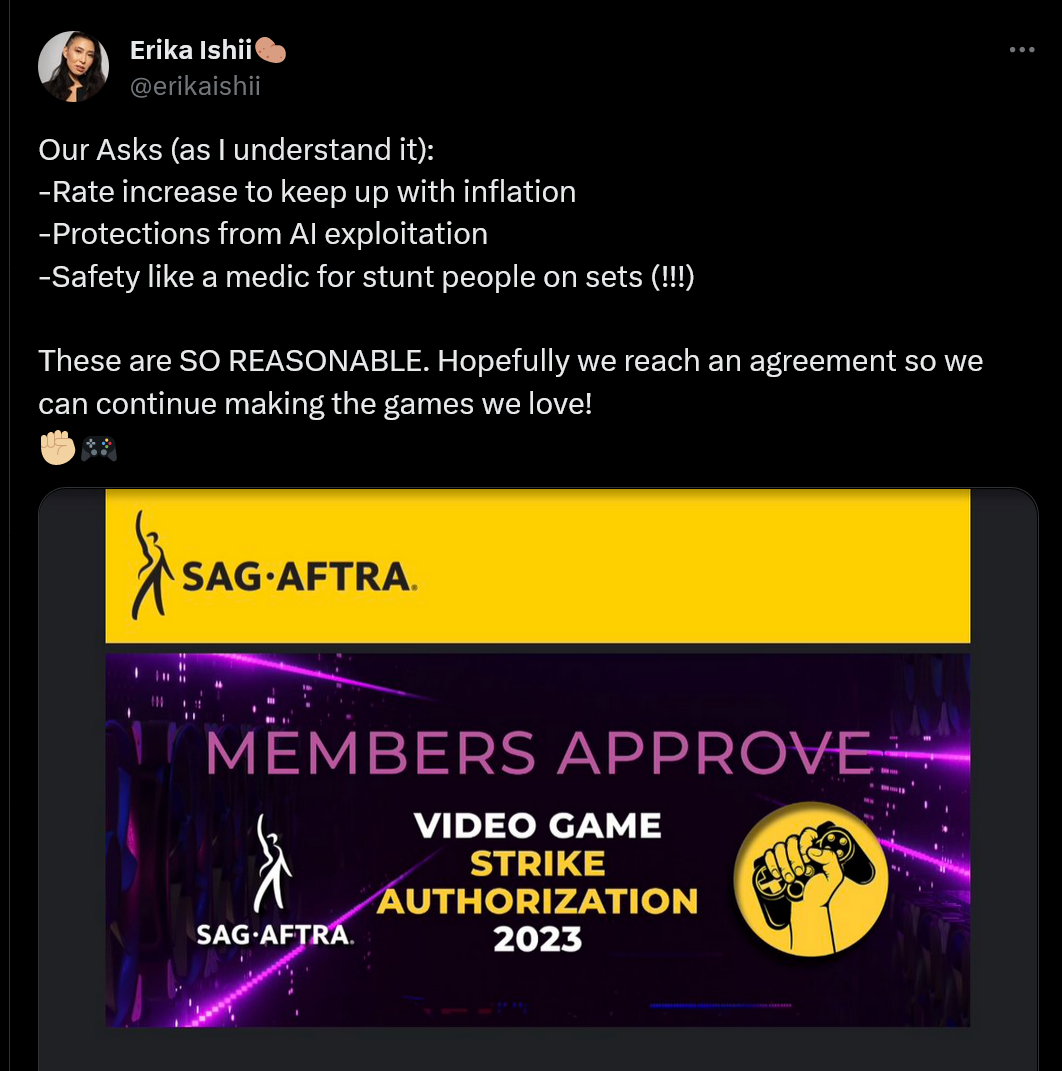
If a strike is ultimately called, it won't mean a complete halt to all videogame production, as game companies could opt to work with non-union actors, or even AI-generated voices, in place of SAG-AFTRA members. But it would undoubtedly be disruptive: At the very least, production delays would likely be made necessary by efforts to recast roles, particularly in demanding, big-budget games.
In response to the strike authorization vote, a spokesperson for the videogame companies involved in the negotiations expressed optimism that an agreement will be reached without a work stoppage. "We will continue to negotiate in good faith to reach an agreement that reflects the important contributions of SAG-AFTRA-represented performers in videogames," the representative said in a statement provided to PC Gamer. "We have reached tentative agreements on over half of the proposals and are optimistic we can find a resolution at the bargaining table."

Andy has been gaming on PCs from the very beginning, starting as a youngster with text adventures and primitive action games on a cassette-based TRS80. From there he graduated to the glory days of Sierra Online adventures and Microprose sims, ran a local BBS, learned how to build PCs, and developed a longstanding love of RPGs, immersive sims, and shooters. He began writing videogame news in 2007 for The Escapist and somehow managed to avoid getting fired until 2014, when he joined the storied ranks of PC Gamer. He covers all aspects of the industry, from new game announcements and patch notes to legal disputes, Twitch beefs, esports, and Henry Cavill. Lots of Henry Cavill.

